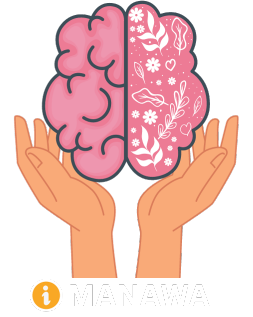
Mental health is a topic of growing importance in today’s fast-paced and demanding world. While the focus has primarily been on the psychological aspects of mental health, recent research suggests that mental health can also impact physical well-being. From weakened immune systems to increased risk of chronic diseases, the relationship between mental health and physical health is a complex one. In this article, we will delve into the question, “Can mental health make you sick?” and explore the various dimensions of this link. We will examine the effects of mental health on the body, discuss strategies for maintaining good mental health, and provide insights into how mental health influences overall wellness.

Can Mental Health Make You Sick?
Mental health can indeed impact physical health in a variety of ways. When individuals experience high levels of stress, anxiety, or depression, their bodies respond by releasing stress hormones, such as cortisol. Prolonged exposure to these hormones can lead to a range of physical health issues. Here are some key ways in which mental health can make you sick:

- Weakened Immune System and Increased Susceptibility to Illness: When you’re under constant stress or experiencing prolonged periods of anxiety or depression, your immune system can become compromised. This makes you more susceptible to infections, viruses, and other illnesses.
- Digestive Problems: Mental health issues like stress and anxiety can lead to digestive problems, such as irritable bowel syndrome (IBS), acid reflux, and stomach ulcers. The gut-brain connection plays a significant role in how mental health affects the digestive system.
- Cardiovascular Issues: Chronic stress and anxiety can elevate blood pressure, increase heart rate, and contribute to the development of cardiovascular diseases like hypertension and heart disease. Mental health problems can also impact lifestyle choices, such as poor diet and lack of exercise, which further contribute to heart-related issues.
- Chronic Pain and Headaches: Conditions like migraines, tension headaches, and fibromyalgia are often intertwined with mental health issues. Stress and anxiety can exacerbate pain perception, making chronic pain conditions more severe.
- Sleep Disorders: Mental health disturbances can disrupt sleep patterns and lead to insomnia, sleep apnea, and other sleep disorders. Lack of quality sleep can significantly impact physical health, interfering with the body’s ability to repair and recover.
- Weight Gain and Obesity: Emotional eating, caused by stress or depression, can lead to weight gain and obesity. In addition, certain mental health medications may have side effects that contribute to weight gain.
- Hormonal Imbalances: Psychological stress can disrupt hormonal balance, leading to irregular menstrual cycles in women and hormone-related issues in men. It can also result in a decrease in libido and sexual dysfunction.
- Compromised Cognitive Function: Mental health problems, particularly conditions like depression and anxiety, can negatively impact cognitive function, affecting memory, concentration, and decision-making abilities.
It is important to note that the relationship between mental health and physical health is complex and interconnected. These examples highlight some common effects, but each individual may experience a unique combination of symptoms.
How to Maintain Good Mental Health: Strategies for Wellness

Now that we understand the potential impact of mental health on physical well-being, it is crucial to prioritize and maintain good mental health. By taking proactive steps to care for our mental well-being, we can reduce the risk of developing physical health issues. Here are some effective strategies for maintaining good mental health:
- Seek Social Support: Developing a strong support system of friends, family, and professionals can provide a crucial lifeline during difficult times. Engaging in meaningful social connections helps reduce feelings of isolation and fosters a sense of belonging.
- Practice Self-Care: Prioritize self-care activities that promote relaxation, stress reduction, and emotional well-being. This can include engaging in hobbies, practicing mindfulness and meditation, participating in regular exercise, and getting adequate rest.
- Set Boundaries and Manage Stress: Learning to say no and establishing healthy boundaries in personal and professional relationships is essential for managing stress levels. Engage in stress-reducing techniques such as deep breathing exercises, yoga, or engaging in creative outlets.
- Maintain a Balanced Lifestyle: Incorporate healthy habits into your daily routine, such as maintaining a nutritious diet, getting regular physical activity, moderating alcohol and caffeine intake, and avoiding tobacco and substance use.
- Cultivate Resilience: Building resilience is crucial for maintaining good mental health. Practice positive self-talk, develop problem-solving skills, and seek professional help when needed. Building resilience helps individuals navigate challenges and bounce back from setbacks more effectively.
- Practice Mindfulness and Stress-Reduction Techniques: Engaging in mindfulness-based stress reduction techniques, such as meditation, deep breathing exercises, or yoga, can help reduce anxiety, improve focus, and promote emotional well-being.
- Challenge Negative Thoughts: Recognize and challenge negative thoughts and beliefs that contribute to poor mental health. Replace negative self-talk with positive affirmations and focus on promoting self-compassion.
- Schedule Regular Check-Ins: Regularly check in with yourself and seek professional help if you notice persistent symptoms of poor mental health. Early intervention and treatment can prevent further deterioration of mental and physical well-being.
By incorporating these strategies into our lives, we can promote good mental health, strengthen our resilience, and reduce the potential for mental health issues to impact our physical well-being.
Frequently Asked Questions (FAQs)
- What are the warning signs of poor mental health? Poor mental health can manifest in various ways. Look out for symptoms such as chronic sadness or lack of enjoyment, persistent anxiety, changes in appetite or sleep patterns, mood swings, social withdrawal, and difficulty concentrating. If you notice these signs persisting for an extended period, consider seeking professional help.
- Can mental health issues be prevented? While some mental health disorders may have genetic or biological components, certain preventive measures can help reduce the risk. Regular exercise, stress management techniques, maintaining healthy relationships, and seeking support at the earliest signs of distress are proactive steps towards prevention.
- Is poor mental health common? Yes, poor mental health is a prevalent issue globally. According to the World Health Organization (WHO), approximately one in four people will experience mental health issues at some point in their lives. It is essential to prioritize mental health as a vital aspect of overall well-being.
- When should I seek professional help for mental health concerns? It is crucial to seek professional help if you experience persistent symptoms of poor mental health that significantly impact your daily life, relationships, or overall well-being. If you feel overwhelmed, it is always better to reach out to a mental health professional who can provide guidance and support.
Conclusion
The relationship between mental health and physical health is undeniable. Poor mental health can indeed make you sick, impacting various aspects of your physical well-being. From weakened immune systems to increased risks of chronic diseases, it is clear that maintaining good mental health is essential for overall wellness. By prioritizing strategies for mental health care, such as seeking support, practicing self-care, and managing stress, you can reduce the impact of mental health issues on your physical well-being. Remember, your mental health matters, and nurturing it is a crucial aspect of leading a vibrant and healthy life.
